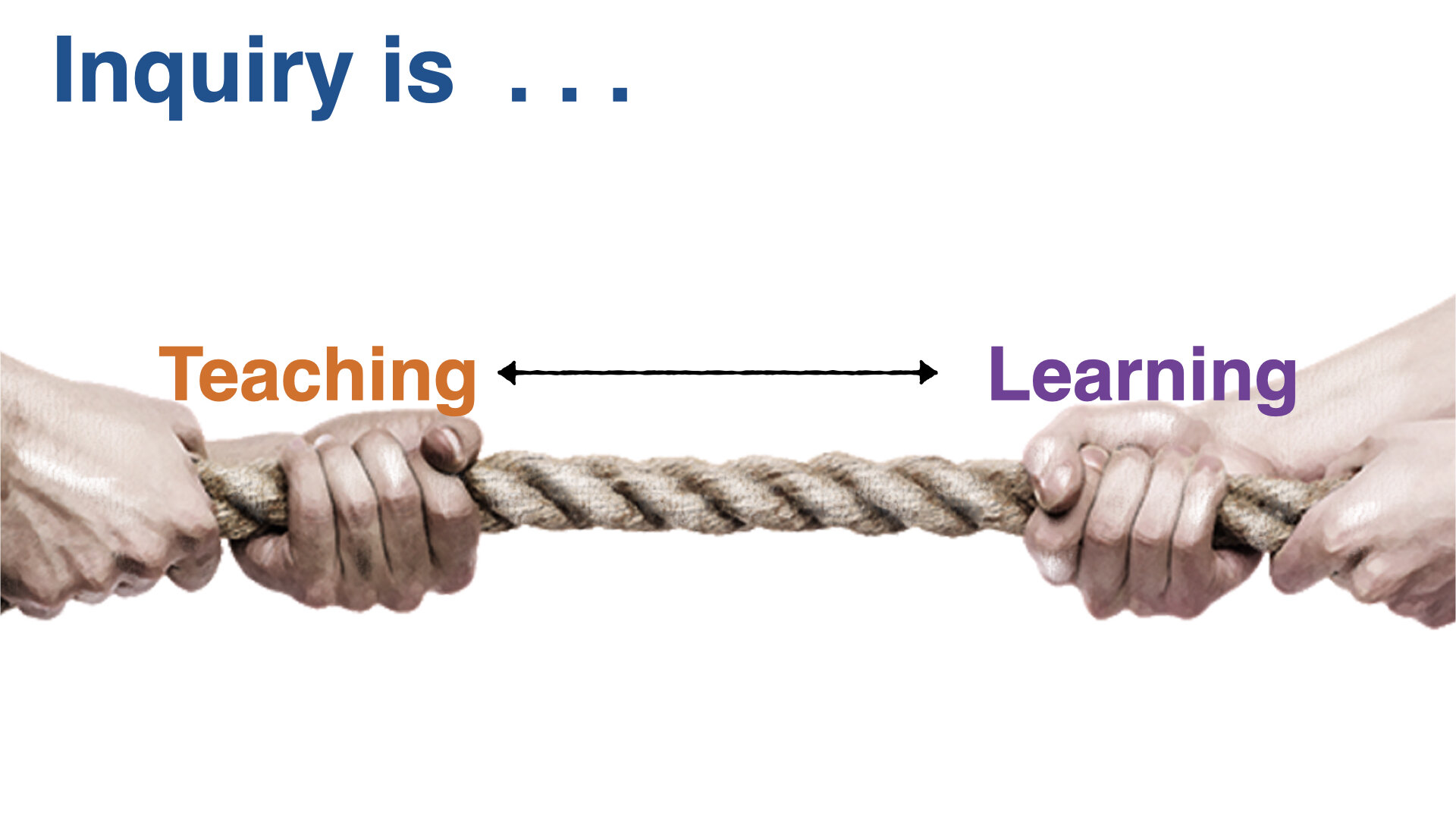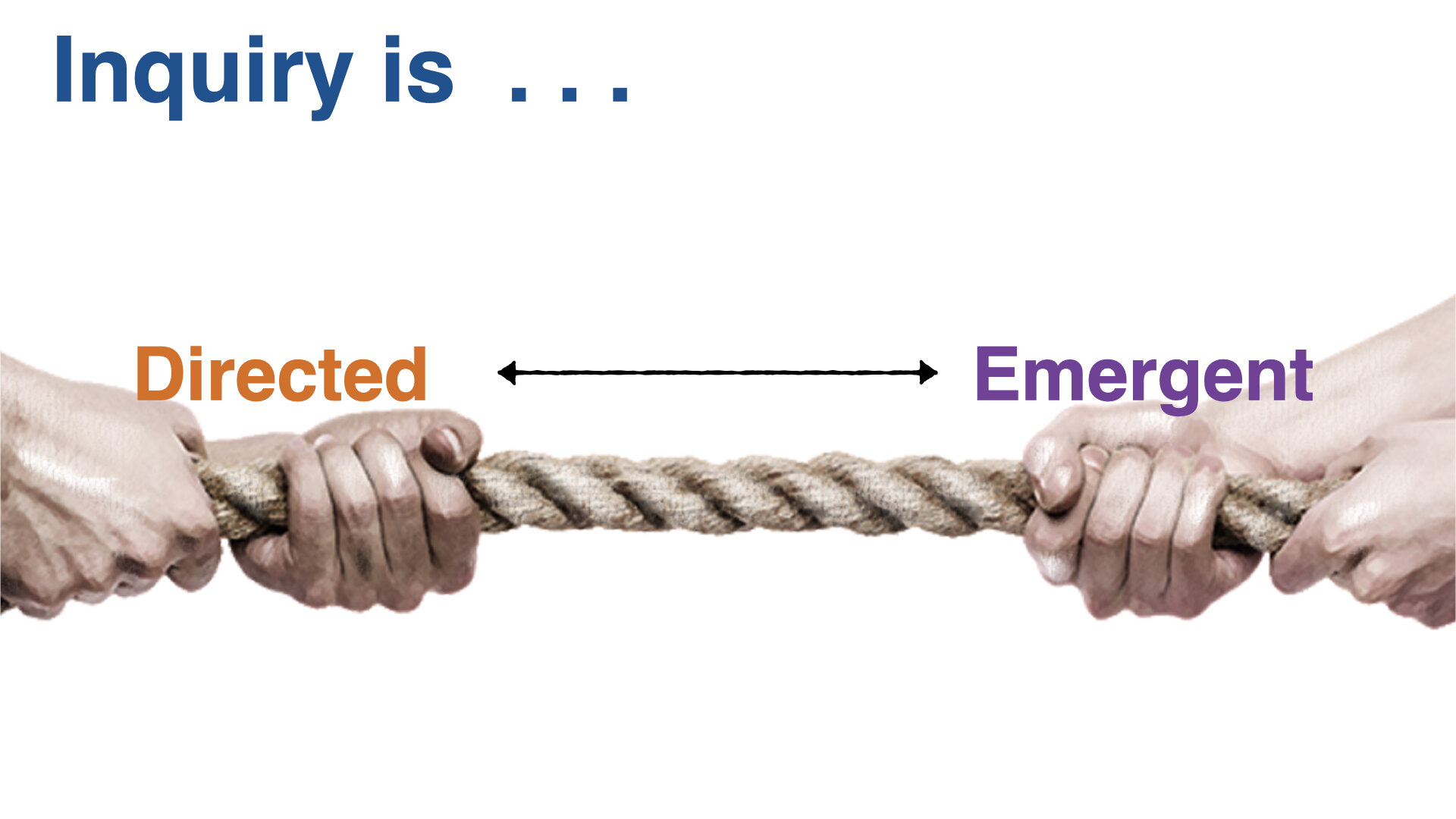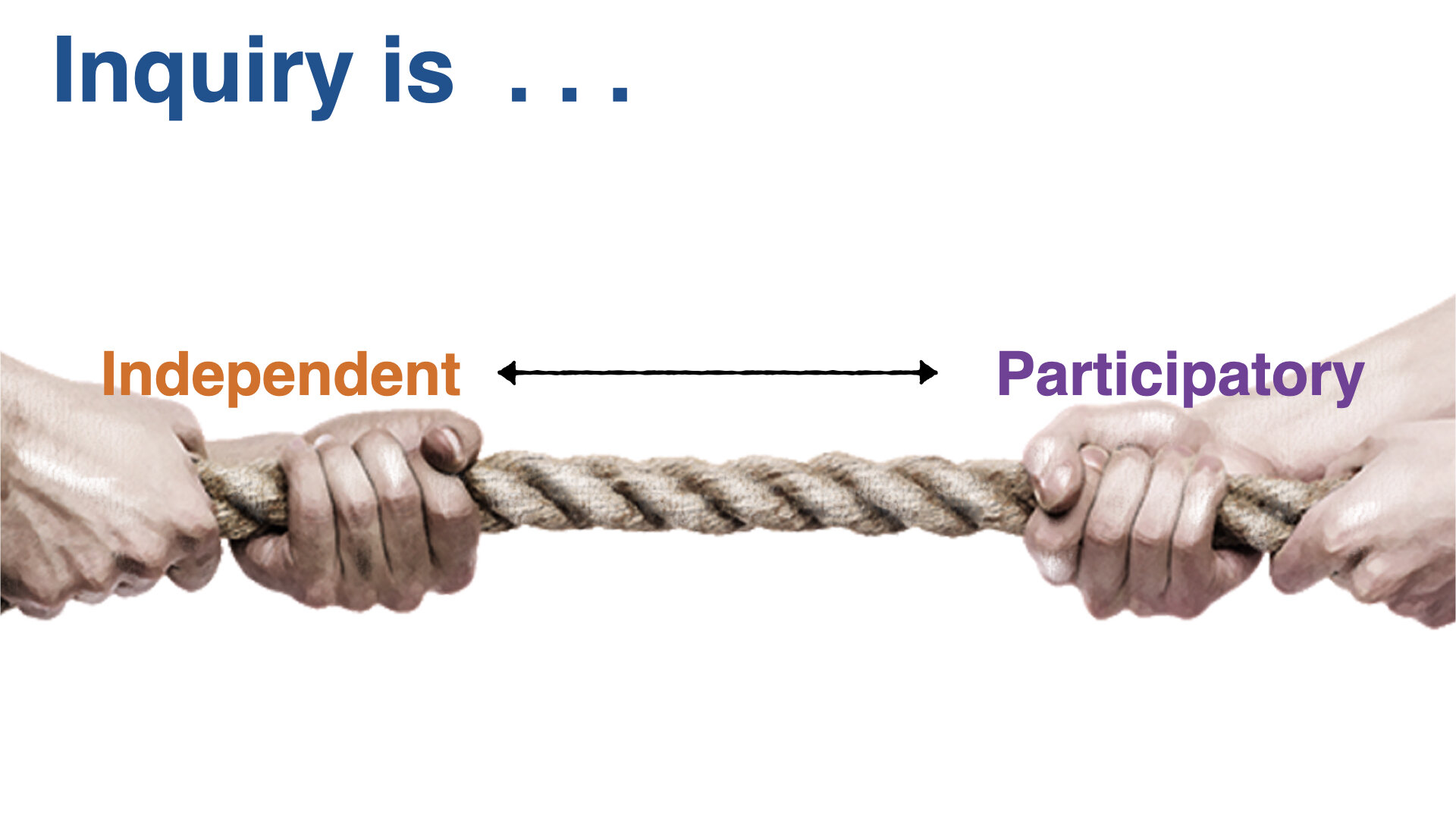Recently I have been contemplating how we might define inquiry. Like many terms in education, it is often used in multiple contexts and has a range of meanings attached to it. Coming to agreement on what inquiry is, requires negotiating seemingly divergent understandings. If we are to avoid oversimplifications and dichotomous thinking, we need to explore these multiple perspectives and find a balance point.
Inquiry is both pedagogy and curriculum. In simple terms, pedagogy is how we teach and curriculum is what we teach, or what we hope our students will learn. Inquiry is a method by which we can engage our students in the process of learning. In this sense, it is a pedagogical method. We can take an inquiry stance and utilise associated methods to teach our students the desired content. Such an approach fits nicely with a constructivist perspective on learning where the act of learning requires the individual to make meaning from their context. Inquiry is also curriculum. It is a set of skills and capacities that we might hope our students will acquire. Just as with skills for reading, writing, painting, playing, etc, there are particular skills associated with inquiry and as teachers, part of our job is to teach these skills. Agreeing that there are skills for inquiry and that they are worth learning does not bring with it consensus on the nature of the pedagogy most appropriate for this. Regardless of the pedagogical framework attached to the teaching of these skills, it is generally agreed that at some point in the learning process students need to engage in practising their newly acquired skills. If we are teaching a child to throw a ball, at some point we will allocate time to them to practise these skills. The same applies to learning to inquire.
Inquiry is something teachers do. When we ask where are my students with their learning, we are inquiring. When we create opportunities for students to demonstrate their understanding we are continuing this inquiry process. When we investigate the curriculum, when we experiment with new pedagogies, when we collaborate with colleagues, we are conducting inquiries. This sort of inquiry is a very human expression of our curiosity. In modern times with the internet providing us with access to a wealth of resources, our capacity to manage an inquiry process empowers us as teachers. And, inquiry is something our students do when they consider where they are with their learning. Inquiry is a cognitive process that learners do when they are learning. The process of inquiry actively engages you in a learning process and without inquiry, without thinking, learning is not possible. This does not mean that all learning is to be delivered through an inquiry process, but that at all times we want our students to approach their learning with an inquisitive mind. If our learners are engaged in a kind of mental dialogue with the learning opportunities we present to them, and that they engage in, their is a much better chance the the learning will stick.
Inquiry is both behaviour and disposition. There are behaviours or actions associated with the inquiry process. We can learn these and we can teach them. Learning how to manage an inquiry process will make us more effective and might ensure that the results of our inquiries are productive and reliable. Further, there are certain actions and processes which support an inquiry-based learning model in our classrooms. As teachers, we can learn to manage these processes and by doing so make our inquiry-based classroom a more effective learning environment. But, inquiry is more than just the actions that we take, it is a disposition. This perspective requires us to have the capabilities required for effective inquiry (learning or teaching) combined with a sensitivity to opportunities to apply these skills and the motivation to subsequently do so. Knowing how to inquire is only part of the process, it is made powerful when combined with an inquisitive nature.
Inquiry can be both directed and emergent, sometimes simultaneously. In the classroom, students will often engage in an inquiry process that is initiated by their teacher. . The teacher is likely selecting inquiry topics derived from the formal curriculum. Students gain a great deal of learning from this sort of inquiry and it can be an excellent tool for also expanding their competence with the inquiry process. When students are young, and throughout their lives, inquiry emerges from their engagement with their environment. As we interact with the environment, as we engage with fellow humans, as we notice and wonder about the nature of things, questions emerge and these become rich fodder for inquiry. When we and those who inspire us value inquiry, we are more likely to look for opportunities for this sort of emergent inquiry and to engage actively with it.
Much as the topic for inquiry can be selected for us or emergent, the processes that we utilise for this inquiry might be guided or self-organised. We might be required to utilise a particular inquiry process. Maybe we are engaged in a scientific inquiry and it is expected that we apply a strict scientific method. Maybe we are participating in an inquiry that utilises a particular model of design thinking with a structure that ensures all participants know where they are in the process and what comes next. Sometimes though, inquiry is much more like play. Watch a child playing with a hose and a bucket of water and you will see self-organised inquiry in action. As the child experiments with various interactions, between the bucket and the hose, with the pressure of the water, with their finger over the spout or the end of the hose wriggling like a snake as the water sprouts skyward, this is self-guided inquiry at play.
And, inquiry can be something that we do in isolation or in collaboration, independent or participatory. It is natural to consider inquiry as something that the individual partakes in. We do this as our mind wanders to questions as we seek answers. Inquiry is also a participatory process. We participate in inquiry when we collaborate with others in the pursuit of new solutions, ideas and wisdom. Further, we participate in the great act of human inquiry when we add our understanding to the pool of human knowledge and when we build on from the ideas and inquiries of others.
In short, inquiry is a complex process with multiple dimensions. It is a very human quality and it is inherently linked to the processes of learning. When we consider the diverse nature of inquiry and the impact that it has on learning, we are better able to understand its place within education.
by Nigel Coutts






